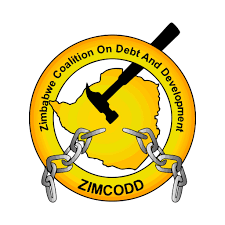Zim workers face more economic hardships amid global crises: ZIMCODD

The Zimbabwe Coalition on Debt and Development (ZIMCODD) has bemoaned how current global crises has worsened the socio economic standing of Zimbabweans who are already struggling due to unequal incomes, harsh tax regimes, social inequality and shrinking civic space.
ZIMCODD, a socio economic justice coalition, expressed solidarity with workers across Zimbabwe and the globe on May 1, which serves as a reminder of the many challenges faced by workers, as well as their resilience and determination in the face of adversity.
“The global economy is still recovering from the challenges caused by the Covid-19 pandemic, Russia-Ukraine conflict, climate change, growing debt burdens, runaway inflation and increasing inequality, crises whose impact is felt increasingly by labour as incomes lose their value, governments impose increased taxes and economies continue to seek stability,” said the coalition in a statement to commemorate Workers Day on May 1.
“In Zimbabwe, these challenges compound the unequal socioeconomic standing of citizens and have worsened hardship through inadequate access to healthcare, job insecurity and disparities in income and working conditions.”
ZIMCODD said the devastating effects of the El Niño-induced drought have further heightened food insecurity and economic vulnerability, particularly among agricultural workers and rural communities.
“The resulting strain has perpetuated a cycle of poverty, leaving vulnerable populations (including labour) increasingly marginalised,” said the coalition.
As a pro-poor movement, ZIMCODD said it was also concerned by rising commodity prices and an unstable currency worsening the situation for citizens.
“This is also at a time when the government is imposing heavy taxes on citizens. While also reflecting on labour, we must note the unemployment rate which remains high.”
The unemployment, according to ZIMCODD, has left the majority of youth vulnerable to social vices such as drug abuse and crime, citing that as an increasing challenge especially in urban areas.
“Further, the majority of those who identify as employed are in the informal sector which is continually harassed by authorities with no social security or insurance benefits or protection from the government,” said the tax justice coalition.
“ZIMCODD pays tribute to the resilience and dedication of labour, particularly those in agriculture, healthcare, manufacturing, and other sectors. We recognise the sacrifices made by workers and call for greater solidarity and support to guarantee their well-being and dignity.”
ZIMCODD also recommended that the government adopt certain measures to relieve the pressure on labour.
These measures according to ZIMCODD are investing in the creation of decent jobs in the formal economy and making sure there is social protection especially at retirement.
“(The government must) facilitate the transition of the informal to formal sector providing adequate protections, credit facilities and opportunities against monopoly capitalism. Allow the opening up of civic space for democratic expression against the challenges that labour is facing.”
The coalition emphasised that it stands in solidarity with workers ‘everywhere’ and reaffirmed its commitment to creating a society where every worker is empowered, respected and able to thrive.
“In the same light, we call on all labour, social movements and civil society to join hands against inequality, unfair taxation, high unemployment and shrinking civic space,” said ZIMCODD.






